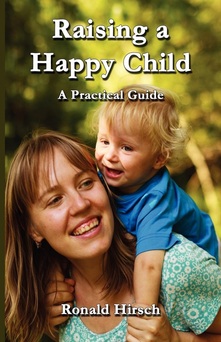- Home
- TEACHINGS: Blog
- Coming Home Video Series
- The Heart Sutra | A New Translation & Commentary
- LIFE COACHING
- BOOKS:
- How to Find Inner Peace
- The Self in No Self
- Making Your Way in Life as a Buddhist
- Scratching the Itch: Getting to the Root of Our Suffering
- Raising a Happy Child
- Dear Buddha | An Advice Column
- A Buddhist Anthem - There's Nothing Like Today
- Who Am I?
- Bio
- Contact
Raising a Happy Child

"This book will help many people. A common sense approach to compassion and self-care that all of us need to hear. ... Precious, well-written, and very clear.” Joseph Mauricio, Senior Teacher in the Shambhala Buddhist tradition
The myth of childhood is that it is a happy, carefree time. But typically it is neither carefree nor happy; it is fraught with insecurity. Raising a Happy Child seeks to change this fact of human development.
Why do children suffer this fate? What becomes of our lives is overwhelmingly a function of learned experience ... from our family, our peers, and the larger culture ... but first and foremost from our parents.
Now, the vast majority of parents are good people and would not do anything intentionally to harm their child. But parents are people who are a function of their own upbringing and learned experience. They have their own fears, frustrations, angers, and desires. And they see things through the lens of that experience and those emotions, which in turn impacts how they interact with their children. The result is children who do not feel loved unconditionally, are as a consequence insecure, and grow up to become insecure adults who do not love themselves unconditionally. This is the primal basis of our fears and neuroses.
But this does not mean that parents should simply lavish praise on their children, give them what they want, or be uncritical of their children. Direction and criticism are important parental functions; the question is how they are given, in what context. Raising a Happy Child seeks to provide parents with the means to step outside themselves, to be able to experience their child, themselves, and the world around them mostly free of their learned experience and emotions, thus enabling them to provide their children at all times with the nurturing and unconditional love they need to be happy and secure.
The book then guides parents through the critical development stages of a child's life, providing advice on how to address the significant issues that arise at each stage within the context of unconditional love. Raising a Happy Child seeks nothing less than to fundamentally alter the quality of the relationship between parents and children, and thus
change the way children relate to themselves and the world around them.
Having of course been a child myself, my perspective on raising children has been formed by my own experiences as a child, as well as a lifetime of observing other children and their parents, a decade of tutoring at-risk children, and my understanding of the ego, happiness, and our culture that has developed while walking the path of Zen Buddhism.
The book is available in both softcover - $10.95, and eBook - $9.99 formats.
